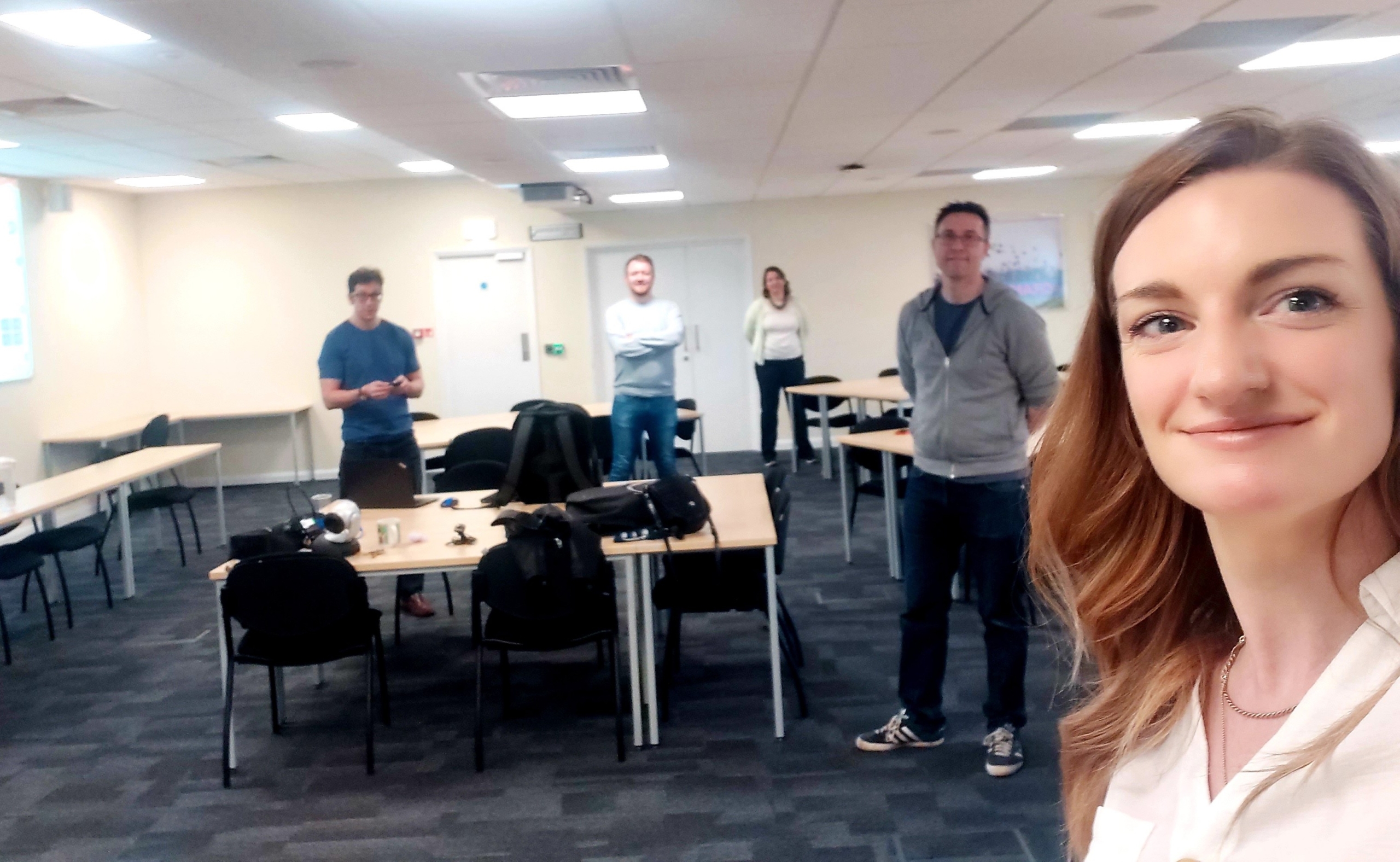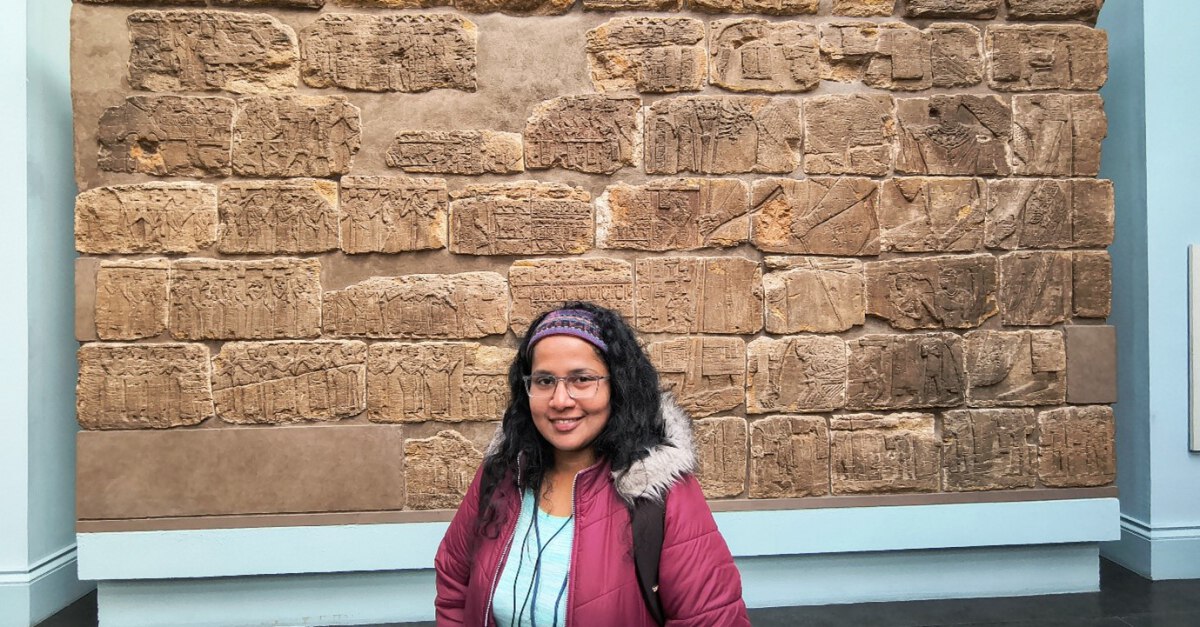Stepping up in the digital world
11/09/2020

It’s not about “soft skills” – it’s about talent and teamwork.
At the end of the summer, I interviewed colleagues from the Digital Education and Student Systems teams about the lightning speed of their response at the onset of the pandemic, and what it takes to step up in the digital world.
As the conversation unfolded, I could feel the semantics of the words “Digital” and “Technology” shifting on my tongue. I’d set out to discover how brilliant Cranfield women have triumphed in their roles as the world, and our jobs, moved online overnight. But I soon realised I had joined the meeting with that pesky devil called Unconscious Bias sitting on my shoulder. Our experiences at work and the gender-based stereotypes we’ve grown up with go some way to explaining the assumption that had formed in my mind; that it must be the so-called “soft skills”, often attributed to women more than men, that are empowering women in the virtual world. Within seconds, Graham Bell cleared up this misconception for me.
Whilst readers may be interested to note that there are twice as many women as men in the Digital Education Team (and that’s partly why I wanted to talk to them), what Graham values and appreciates is their diverse skill sets, their raw talent and their unwavering commitment to Cranfield.

Critically during Covid-19, Graham’s team have driven forwards, at an astonishing pace, the move to online delivery of post-graduate lectures. At the time of writing, approximately 700 lectures have been meticulously scheduled and professionally executed, with a trained co-host on hand to assist. More than 500 faculty, associates and staff have been educated remotely in how to deploy the full functionality of Zoom. Alongside other Digital Education colleagues*, these incredible achievements are the work of Kristy McCrindle and Ilka Ellis.
Critically during Covid-19, Graham’s team have driven forwards, at an astonishing pace, the move to online delivery of post-graduate lectures. At the time of writing, over seven hundred lectures have been meticulously scheduled and professionally executed, with a trained co-host on hand to assist. More than five hundred faculty, associates and staff have been educated remotely in how to deploy the full functionality of Zoom. Alongside other Digital Education colleagues*, these incredible achievements are the work of Kristy McCrindle and Ilka Ellis.
I asked Graham to share with me some qualities that his team have demonstrated over the last few months which make them such an asset to Cranfield.
“They are incredibly talented individuals who have the capability to take a step back and think strategically; not just making the easy decision, but the right decision.”
Graham Bell
“They have the ability to ‘fail fast’”, he said, “which means trying something new, evaluating what worked and what didn’t, and always being prepared to learn and adapt. In the early days of our lockdown response, there were a lot of fast-changing issues and I had to repeatedly re-brief the team. Their quick thinking and the agility of their response to a constantly changing brief has been seriously impressive; as has their ability to build relationships and rapport”. Throughout our 45 minute conversation, that word rapport came up time and again.
After deciding to write about digital innovation, I felt like I could be wading out of my depth. But it turns out that to achieve and succeed the virtual world, relationship building is of equal – if not greater – importance than technical knowledge.
“We’ve worked with faculty who don’t have a great deal of experience with computers and who are used to teaching face-to-face” said Graham. “Kristy, Ilka and the team have ensured that those faculty members, and the colleagues co-hosting alongside them, feel supported. Those relationships are absolutely crucial.”
By this point, any aspersions that the world of digital learning is “techy” or male dominated had been well and truly cast aside. The ‘virtual’ reality is that we can all succeed in this online workspace by working hard, building trust and supporting one another.

Alongside Graham’s team, I also interviewed Sarah Malcolm who works in Student Systems. Sarah’s role involves streamlining processes and enhancing the user experience for our students, PSUs and teaching staff. Sarah’s line manager is a woman, and so is the manager above her. I felt that “unconscious bias devil” slide off my shoulder once and for all, into a rather pathetic and embarrassed heap on the floor.
There is a long legacy of brilliant female leaders who have set the stage and continue to set an example at Cranfield.
As Graham said; “there is definitely a stereotypical view of IT, but my experience at Cranfield has been somewhat different. When I joined the IT department 26 years ago, the IT director was a woman named Elaine Hulley. She was an incredibly strong character who had replaced another woman in that role before her.”
“Cranfield has a history of women in senior technology roles and recognises the opportunities that come with having diverse teams – perhaps more than some industries do.”
Graham Bell
Ilka was brought into Graham’s team specifically to offer a new perspective from outside academia. I asked her what experience she had drawn upon from her years in the automotive sector in order to make such a positive impact during the pandemic.
“Having worked in the world of e-learning for a long time, it’s an industry that constantly changes,” she said. “Systems change, new platforms and devices come along and people find different ways to use them. This was great preparation for me and I enjoy the excitement of there always being something new around the corner, but I admit that sometimes I have had to learn the night before what I taught people the following day! I do it for the reward of helping people; to make their jobs easier and to enable them to be the kind of faculty that they want to be.”
“Technology is never static; we are continually discovering what’s possible. The challenge is to work out which tech is worth putting our energy into.”
Ilka Ellis
Cranfield’s resilience in the face of the pandemic has been all about putting our students first.
Ensuring that our students experience minimal disruption to their studies and that faculty are self-sufficient at home, is what motivates so many of our University colleagues. Graham is not building a ‘technology team’; they are a team who are passionate about learning, developing and facilitating digital education to the very highest standards. The flexible, customised, and blended learning that CED has delivered to clients across the globe has stood this team in excellent stead for the constantly changing environment they now work in.
“Yes we need a strong understanding of design skills and learning journeys, but it’s more about how we bring people along with us on that journey. It’s as much about engagement as anything.”
Graham Bell
As an Exec MBA, Kristy is living the student journey and her insider knowledge is helping to ensure Cranfield’s outstanding teaching standards and high degree of student engagement have been maintained online. She has honed her Active Listening skills in order to get the most out of her MBA, whilst working behind the scenes on the concept of ‘Digital Citizenship’; empowering students to take ownership of their learning – and all this on top of providing a faultless schedule for SOM’s online lectures! Kristy acknowledges that being a mum of three means she is used to focusing on one voice above the noise.

For students, Kristy reinforced the importance of being present and visible on screen, being well prepared, and being willing to ask questions during interactive sessions.
“For students who lack the confidence to speak up in a lecture room, they can now pose questions privately on Zoom. That functionality is really inclusive”
Kristy McCrindle
Co-hosting hundreds of lectures and webinars has certainly given Kristy’s confidence a boost. But not everyone’s talents and personality shine through on screen in the way Kristy’s does – and that’s OK, because a strong team is a diverse team. Graham values the mix of skills that each of his team bring, not because they are male or female, introvert or extrovert, but because each of them brings unique insights and perspectives from their career journeys up to this point.
“Different ways of thinking can be really valuable. I like people to challenge me; to push back and to challenge the status quo” said Graham. Kristy said of Graham; “he’s been amazing, so understanding and he’s offered just the right level of support.”
As our conversation around ‘Digital’ and ‘Technology’ progressed, I realised that the words themselves have undergone a rapid evolution in 2020.
I’m still finding my feet with an array of digital platforms, but the fact is we all work with innovative digital technology every hour of every day. The sooner we adjust our language (and our CVs) to reflect that, the better.
Sarah shared her experience of working through the pandemic as a single parent, and the fact that her female bosses have personal experience of being at home with young children. She and her colleagues across Information Systems worked tirelessly at the start of lockdown to ensure the processes that underpin applications, admissions, registrations, graduation and student communications were adapted swiftly to the new reality. Like all of us, Sarah has learned a huge amount in a short space of time, operating with a new level of autonomy without her colleagues around her.
We speculated that perhaps Covid will give rise to a new generation of workers who are more resourceful and willing to find things out for themselves, as a result of working in isolation.
We have all be granted a new level of independence, and how we develop ourselves and our networks online is both a challenge and an opportunity.
“Digital business is moving away from being just tech”
Sarah Malcolm
Sarah recalled how “soft skills” were very much a part of her degree in IT Management for Business. “There are some super talented people in Information Services who have amazing technical abilities, but soft skills are really important too; we need the soft skills to integrate the IT systems and processes into the business. I’ve personally found this is something women are able to do well.” Sarah’s experience at Cranfield echoes the message in a recent Forbes article on Emotional Intelligence; that caring is “not just a soft skill, it’s a leadership requirement in the new normal.”
Our discussions around female leadership reminded me of another article I read recently by the Head of the School of Design at The Iceland University of The Arts. In ‘The saga of the husky’, Paul Bennett explains why Icelanders put female huskies at the front of the pack.
“Girl huskies have a strong sense of direction and lead by encouragement. The boy huskies follow them. Without them, the boys just bark and get confused and end up lying down and biting each other… Watching female Prime Ministers and civic leaders take on COVID-19 with a husky-like sense of direction, leading by encouragement, is thrilling to me. I’m not saying that all the boys are confused, but a lot of them seem to be barking and biting each other.” Bennett is of course referring tacitly to world leaders. I’ve seen no barking or biting at Cranfield, but I have certainly seen females leading by encouragement and by example in the Step Up Network.
Another member of the network, Sinem Bilen-Onabanjo, has been reading and researching changes in organisational culture following the move to remote working, and shared with me an article from Thrive Global which identifies “the opportunity to meet each other’s authentic selves” as a serendipitous bi-product of being forced to work from home. The article quotes a female HR consultant, who feels that working from home, with “the true background noise of each other’s lives… has deepened connections and enhanced collaboration”. Just as the conversation was drawing to a close, Kristy’s workspace was invaded by children and the background noise went up by a few decibels!
Like school rules, stereotypes are there to be broken, and whilst Digital and IT teams may have historically tended to be male dominated, Cranfield is breaking this mold. If there is one ‘world’ at Cranfield University where women have been consistently stepping up into leadership positions, it’s Digital.
Having said that, I’m going to make a conscious effort to stop talking about ‘The Digital World’ as though it’s a futuristic land I’ve travelled to on some kind of scary sabbatical! We all know that we will never return the world pre-Covid-19, but there have been days when we’ve felt like we are waiting for a flight “home”. Well, I’m not waiting any more. The speed and effectiveness with which Cranfield’s teaching and learning has moved online allows us to drive confidently forwards with our offering of blending learning. It’s incredibly exciting, and I feel even more sure that we’re heading in the right direction now I’ve had the pleasure of talking to some of the talented women who are pulling our sled.
* Alongside Graham, Kristy and Ilka, The Digital Education Team also includes Stuart Brandom, Daniel McCormick, Emma Sarney, Rebecca Metcalf and Victoria Reilly. All of them are playing a critical part in leading the School of Management through the pandemic.
If you would like to celebrate your team with a Step Up story, or would like talk about bringing your authentic self to work, please get in touch at stepup@cranfield.ac.uk.
Categories & Tags:
Leave a comment on this post:
You might also like…
From Sri Lanka to Cranfield: How a Commonwealth Scholarship transformed my environmental engineering journey
Hi, I’m Kavithanjali Uthayashangar and I’m here to tell you about my journey into environmental engineering. It began with a simple but powerful motivation: a desire to understand how engineering can ...
Inside the Air Transport Management MSc: Classes, assignments, and group project work
What’s it really like to study Air Transport Management at Cranfield? Adit walks us through a typical day, assignment expectations, and the excitement of hands-on group projects. This is the second of three blog ...
Using Factiva to research a company
If you’re tasked with researching a company, your first port of call might be to search Fame or EBSCO Business Source Complete. Your immediate reaction might not be to look at Factiva. However, for larger ...
How do I write a secondary reference … in the NLM style?
Secondary referencing is used when you’re reading a work which includes a quotation from another author, and you – the researcher – can’t obtain the original source. We always advise, where possible, to try to ...
Reaching new heights: How a Global Excellence Scholarship fuelled my aerospace dreams
Leaving my home in India to pursue an MSc in Aerospace Dynamics at Cranfield University was a leap of faith. Hi, I’m Oliza Kachroo and as an international student, the transition ...
How do I reference…when delivering a presentation?
Just as you cite and reference sources in written work, you should also acknowledge the sources you use or quote in oral presentations. Citing your sources in presentations provides your audience with information about the ...






